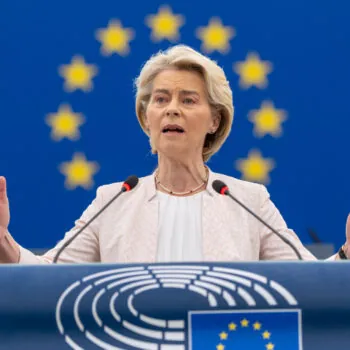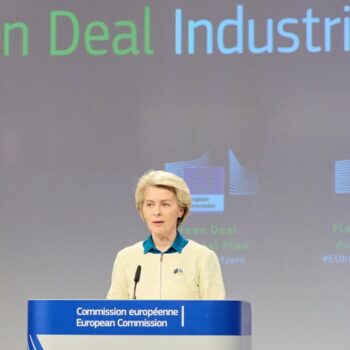The official submission by the UK of its Article 50 notification on the 29th of March 2017 has started the formal process of Brexit. There is massive uncertainty on how the negotiations over the next two years will unfold. The outcome of this negotiation will have major impacts for all areas of policy between the EU and UK, including energy and climate change. Scenario analysis provides an opportunity to explore how progress in the overall negotiations may impact specific policy areas.
The scenarios are built on four key drivers:
- How national interests are prioritized by each side: To date energy and climate change issues have not played a prominent role in Brexit discussions. Instead the UK has chosen to prioritize sovereignty interests to manage immigration and remove the influence of the Court of Justice of the European Union (CJEU) and State Aid restrictions. The EU has so far promoted an integrity agenda focused on maintaining existing rules and norms (such as the four freedoms) and to hold the UK accountable for existing budget liabilities. As the negotiations progress, how these interests interact and evolve will be critical in determining the final outcome.
- Orderly versus disorderly negotiation process: There is no precedent for the Brexit process. The massive complexity involved and potential attempts by each side to gain an advantage through the structure and sequencing of how issues are addressed is of crucial importance. An orderly process would facilitate trust building, enable a clear representation of different views and facilitate compromise towards a final agreement. However, there is a significant risk that the negotiations collapse into a disorderly process, such as happened in the final hours of the Copenhagen climate negotiations in 2009. A breakdown of process would undermine trust and make reaching any deal much harder to achieve.
- The timing and extent of any economic impacts: So far the economic forecasts of large negative impacts in the UK following the referendum have not materialized. The devaluation of the Pound and the fact that the UK continues to enjoy access to all existing EU trading arrangements is a significant factor in achieving this. However, this does not mean that there will not be economic impacts in the future. The potential for rising inflation and political uncertainty to undermine investment decisions over the next two years is non-trivial. On the EU side the devaluation of the Pound has immediately undermined competitiveness vis-à-vis UK companies. In effect causing them to immediately begin to ‘price in’ the cost of Brexit. Depending on how the negotiations evolve, the economic outlook in both the UK and remaining EU-27 Member States may shift perceptions on the type of final agreement that would be desirable.
- Momentum after the Article 50 negotiations: There is significant uncertainty over the full timeframe for the Brexit process. Both sides have publicly discussed some form of continuation arrangement, with the UK referencing “implementation periods” and the EU considering the possibility for a three year transitional arrangement. Thus the momentum from the Article 50 process will be important for determining future cooperation. There may be a number of stakeholders that will attempt to secure a clean break after 2 years, potentially to prevent any attempts to retreat from a full Brexit deal. On the other hand the desire to avoid cliff edges for business and citizens may lead to other stakeholders seeking to maximize the potential for continuation arrangements in order to allow for the smoothest possible process. Whether the Article 50 process is viewed as a ‘one-shot’ or ‘repeated’ game will significantly impact the final outcome.
From an assessment of the key drivers and interests, four main political spaces for landing a Brexit deal within the next 2-3 years emerge as shown in figure 1 below. The key axes in defining the scenarios are an orderly versus a disorderly negotiation process and whether sovereignty/integrity or cooperation interests dominate national positions. These scenarios are focused on the period to 2020, with an assessment of future momentum (either upward or downward). All of the scenarios are predicated on the UK leaving the EU and do not explicitly consider the potential for a second referendum etc. to totally reverse the current political course. However, they do result in very different levels of cooperation going forward.

Figure 1: Overview of political scenarios for Brexit
The negotiating dynamics are initially headed towards a Sovereign Transition scenario whereby the UK continues to prioritize national sovereignty and the EU promotes the integrity of existing institutions. However, this is a very unstable political space. A number of drivers, such as failure to agree on existing UK budget liabilities or the future role of the CJEU, could cause a cause a collapse in the negotiation process and an escalation towards a Hostile Nationalism scenario. In this case there would be a high probability that no final deal is reached at the end of the Article 50 period and both sides would face a messy exit for the UK.
The third scenario, the EU in Chaos, represents a victory for extremist politicians in other EU countries (such as in the forthcoming French elections) or the potential for a Eurozone crisis to lead to a major country such as Italy or Greece leaving the Euro. In this instance the EU focuses its attention elsewhere and the Brexit negotiations would once again be reduced to disorder. The Final scenario, Economic Cooperation, would require a shift in prioritization of national interests to focus on a longer-term and smoother Brexit. In this scenario the initial focus is on agreeing a set of stable transitional or implementation arrangements, which allow for a much longer negotiation of future UK-EU trade arrangements and cooperation on other areas such as climate, energy and security issues.
The Sovereign Transition, Hostile Nationalism and EU in Chaos scenarios produce very negative outcomes for energy and climate issues on both sides. Any restricted access to the Internal Energy Market (IEM) for the UK increases energy prices and creates access issues for EU Member States such as Ireland. There is significant investment uncertainty and the UK’s withdrawal disrupts implementation of the EU 2030 Climate and Energy Package and the Energy Union. Cooperation on energy security suffers and Russia is significantly empowered. The UKs withdrawal from Euratom undermines it’s civil nuclear programme which also has implications for EU based companies such as EDF. In both the Sovereign Transition and Hostile Nationalism scenarios the negative impacts are larger for the UK than the EU; while the position is reversed in the EU in Chaos scenario. Nonetheless, any of these outcomes is likely to provide a significant challenge to the low carbon transition on both sides of the Channel.
In contrast, the Economic Transition scenario provides a much stronger outcome on energy and climate issues. The inherent benefits of continued cooperation are maximized, providing stability for continued investment and delivery of existing programmes. However, at present this scenario is significantly less likely than either the Sovereign Transition or Hostile Nationalism outcomes.
The probability of a successful outcome on energy and climate change can be increased through the establishment of a cooperation track on these issues within the negotiations. The UK has already signaled that it would like to establish a broad partnership with the EU that goes beyond just future trading arrangements. However, it has so far limited the scope of this agreement to hard security issues. By creating a space to discuss future cooperation on energy, climate change and broader environmental objectives both sides can increase outcomes for these policy areas and reduce the chance of a crash Brexit that would damage everyone.
Reading the full E3G report, Brexit Scenarios: Implications for Energy and Climate Change.


